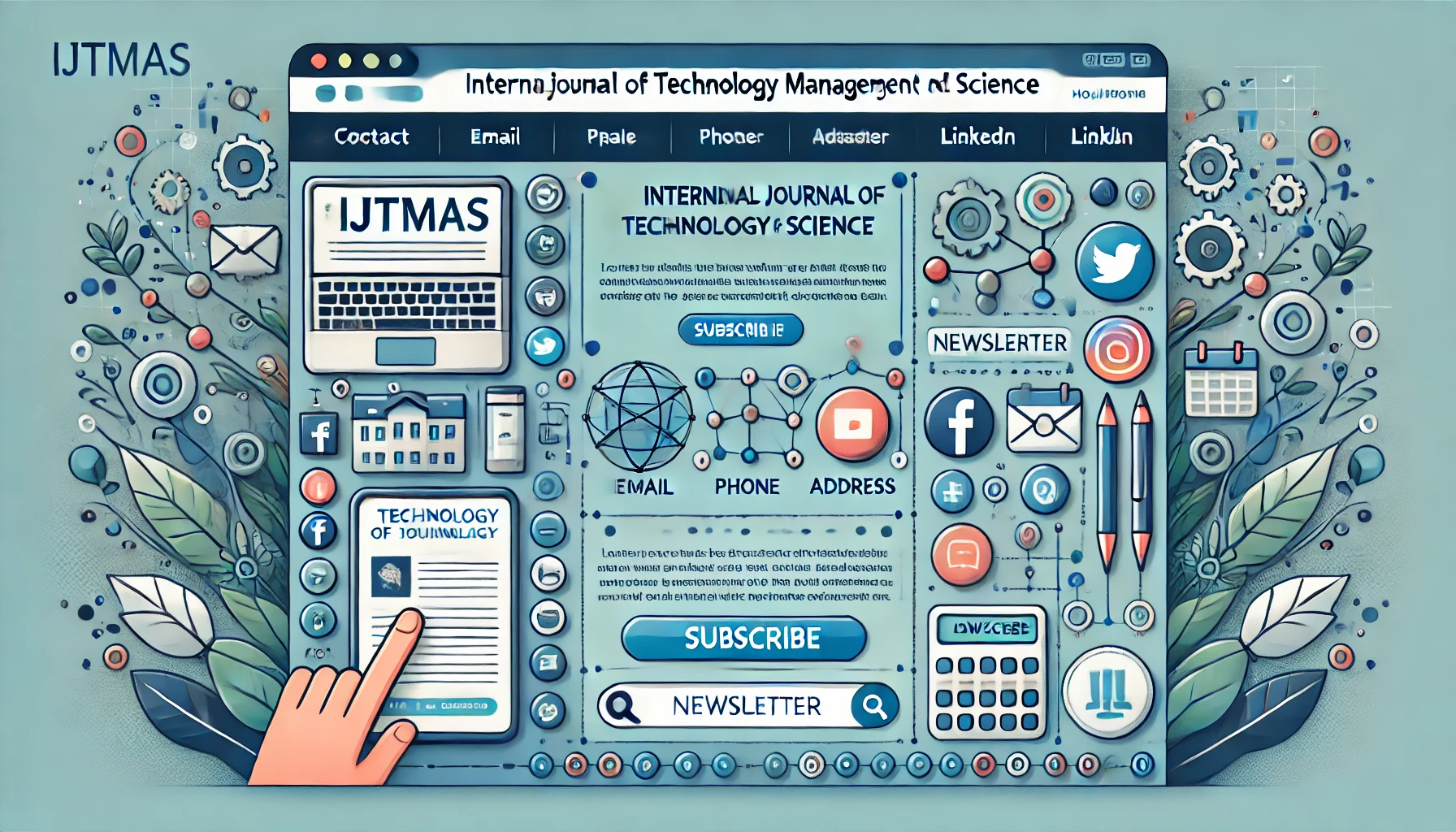
Digital Archiving Policy
Creating a digital archiving policy for the "International Journal of Technology Management and Science (IJTMAS)" involves outlining clear procedures and strategies for preserving and maintaining access to the journal's content over time. An effective and innovative policy should consider the rapidly changing digital landscape and ensure that all stakeholders can reliably access the journal's content in the future. Here is a comprehensive digital archiving policy tailored for IJTMAS:
IJTMAS Digital Archiving Policy
1. Purpose and Scope
The International Journal of Technology Management and Science (IJTMAS) is committed to preserving its scholarly content to ensure long-term accessibility and usability. Our digital archiving policy outlines the strategies and practices adopted by IJTMAS to maintain the integrity, availability, and security of our digital assets.
2. Archiving Objectives
- Preservation of Knowledge: To safeguard the intellectual contributions published in IJTMAS for future generations of researchers, practitioners, and policy-makers.
- Accessibility and Usability: To ensure seamless access to archived content across various platforms and devices, facilitating knowledge sharing and academic advancement.
- Adaptability: To remain responsive to technological advancements and changes in digital preservation standards, continuously improving our archiving practices.
3. Archiving Strategies
IJTMAS will employs a multi-faceted approach to digital archiving, leveraging industry best practices and state-of-the-art technologies:
-
LOCKSS Program: We participate in the LOCKSS (Lots of Copies Keep Stuff Safe) program, which enables libraries to collect, store, and preserve IJTMAS content in a distributed network, ensuring redundancy and resilience against data loss.
-
CLOCKSS Archive: Our journal is part of the CLOCKSS (Controlled Lots of Copies Keep Stuff Safe) archive, a community-driven initiative that provides a dark archive with the ability to restore access to content if IJTMAS ceases operations.
-
Portico: We partner with Portico, a leading digital preservation service, to archive our publications. Portico ensures that IJTMAS content remains accessible and preserved in a trusted digital repository.
-
Institutional Repositories: We encourage authors to deposit their published articles in their respective institutional repositories, enhancing visibility and accessibility.
-
Cloud Storage Solutions: We utilize secure cloud storage platforms to create redundant backups of our digital content, ensuring scalability and rapid recovery in case of technical failures.
4. Content and Formats
IJTMAS is committed to preserving a wide range of digital content, including but not limited to:
- Research Articles: Full-text articles in PDF and XML formats, ensuring compatibility with current and future digital platforms.
- Supplementary Materials: Data sets, multimedia files, and additional resources associated with published articles.
- Metadata: Comprehensive metadata for each publication, facilitating discoverability and interoperability across digital systems.
5. Access and Usage Rights
- Open Access: IJTMAS adheres to an open-access policy, allowing unrestricted access to archived content under the Creative Commons Attribution-NonCommercial (CC BY-NC) license.
- Usage Metrics: We employ advanced analytics tools to monitor and report on the usage and impact of archived content, supporting data-driven decision-making and continuous improvement.
6. Policy Review and Updates
The digital archiving policy of IJTMAS is subject to periodic review and updates to align with evolving technological standards, legal requirements, and community expectations. Feedback from stakeholders is actively sought to ensure that our archiving practices remain robust and relevant.




